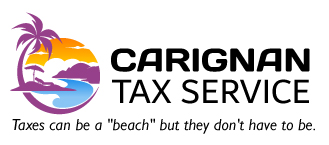Harness the Power of Tax Deductions: A Must-read for Small Businesses
Running a small business can be exhilarating, but also daunting when it comes to dealing with financial matters, particularly taxes. The IRS tax code can be complex and overwhelming. However, understanding tax deductions and how to maximize them can help small businesses save thousands of dollars each year.
As a small business owner, there are a plethora of opportunities to save money and reduce your tax liability. To ensure that you make the most out of these opportunities, it is important to understand and utilize the top tax deductions available to small businesses. Maximizing these deductions will enable you to keep more money in your pocket and reinvest it back into your business.
Understanding the Importance of Small Business Tax Deductions
Why are tax deductions a game-changer for your small business? Imagine tax deductions as the secret weapon in your financial toolbox, helping you combat the dreaded tax bill. The gist of it is this – tax deductions lower the amount of your business’s taxable income reported to Uncle Sam, which, in turn, directly shrinks the size of your tax bill. The real power punch? By strategically maximizing your tax deductions, you’re essentially dialing down your taxable income and, by extension, your tax liability. The ripple effect is more cash flow, giving you extra muscle to reinvest and fuel your business growth.
Knowing Your Eligible Deductions
Think of eligible tax deductions as hidden treasures waiting to be discovered. Many small business expenses can be deducted, so it’s crucial to know where to look. Home office expenses, travel and meals related to your business, and the cost of using your vehicle for business purposes can all be deducted. But don’t forget about other expenditures like equipment, supplies, employee salaries, and benefits, which also count.
Did you also know that your advertising and promotion costs are eligible deductions? And don’t leave out any legal or professional fees, insurance premiums, or interest on business debts. These are all part of your business operations and should be accounted for in your deductions.
It’s not about ramping up expenses just to get tax breaks. Instead, it’s about being aware of all your legitimate expenses and ensuring you are deducting every eligible cost. This is where the real magic happens: every deduction brings you closer to lowering your taxable income and shrinking that looming tax bill.
To help you get started, we have compiled a list of the top tax deductions for small businesses. By taking advantage of these deductions, you can significantly reduce your tax liability and boost your bottom line.
1. Home Office Deduction: If you run your business from a home office, you may be eligible for the home office deduction. This allows you to deduct a portion of your home expenses, such as rent or mortgage interest, utilities, and insurance, based on the percentage of your home that is used for business purposes.
2. Business Vehicle Expenses: If you use a vehicle for business purposes, you can deduct the expenses associated with its use. This includes gas, oil changes, repairs, insurance, and even depreciation. Make sure to keep detailed records of your mileage and expenses to accurately claim this deduction.
3. Business Travel Expenses: If you travel for business purposes, you can deduct expenses such as airfare, hotel accommodations, meals, and transportation. Keep receipts and document the business purpose of your trip to ensure compliance with tax laws.
4. Office Supplies and Equipment: Any supplies or equipment purchased for your business, such as computers, printers, stationery, and software, can be deducted as a business expense. Use accounting software to help organize and categorize your expenses.
5. Professional Services: If you hire professionals such as accountants, lawyers, or consultants for your business, their fees can be deducted as a business expense. Deducting these fees can help offset your tax liability and ensure the success of your business.
6. Advertising and Marketing Expenses: Expenses related to advertising and marketing your business, such as website development, social media advertising, and print ads, can be deducted as a business expense. These expenses are crucial for promoting your business and attracting new customers.
7. Employee Benefits: If you provide benefits to your employees, such as health insurance, retirement plans, or educational assistance, you can deduct these expenses as a business expense. Offering competitive employee benefits can help attract and retain top talent.
8. Education and Training Expenses: Investing in education or training to improve your skills or stay up-to-date with industry trends can be deducted as a business expense. This includes attending conferences, workshops, and online courses.
9. Rent and Utilities: If you rent office space or a storefront for your business, you can deduct the rent and utilities as a business expense. This includes expenses such as electricity, water, internet, and phone bills.
10. Insurance Premiums: Premiums paid for business insurance, such as liability insurance or property insurance, can be deducted as a business expense. Deducting these premiums can help offset the cost of protecting your business from unforeseen events.
Leveraging Tax Credits
Hold onto your hats, because we’re about to turbocharge your savings with tax credits! Think of tax credits as the superhero of your tax savings strategy, swooping in to directly slash your tax bill on a dollar-for-dollar basis. Unlike deductions that reduce your taxable income, tax credits straight up deduct from your actual tax bill. Boom!
Let’s dive into the types of activities that can help you qualify. First up, your hiring practices could be a gold mine. Did you know that employing individuals from certain groups can earn you tax credits? It’s a win-win situation, you diversify your workforce and save money simultaneously.
What about your eco-friendly efforts? If your business has made strides towards going green, you may be entitled to specific tax credits. Similarly, if you’re providing healthcare benefits to your employees, there’s a tax credit for that too.
However, don’t just sit back after snagging these credits. Keep abreast of the latest tax laws to make sure you’re capitalizing on all the tax credits available to your business. Also, remember to review your tax credit eligibility each year, as your evolving business practices could unlock new opportunities to save.
Utilizing a Tax Professional
Navigating the maze of tax laws and deductions can feel like trying to solve a Rubik’s Cube blindfolded. That’s where a seasoned tax professional like Sandra Lanasa comes into play. Her expertise can be your compass guiding you through the complexities and ever-changing tax landscape. Now, you might be thinking, “Isn’t hiring a professional just another expense?” Look at it this way – yes, there’s an upfront cost. But the long-term gains often outweigh this initial outlay.
Having a tax pro on your team frees up your time. Time you can spend running your business, developing growth strategies, or even just taking a well-deserved break. So, while the thought of hiring a tax professional might seem daunting, remember, it’s an investment that could pay dividends in your quest to maximize your small business. Contact Sandra Lanasa today and get started!
Disclaimer: This blog is for informational purposes only and should not be considered as legal or financial advice. Please consult with a professional tax advisor or accountant for specific guidance related to your business.




